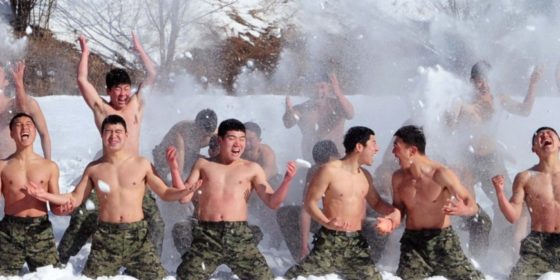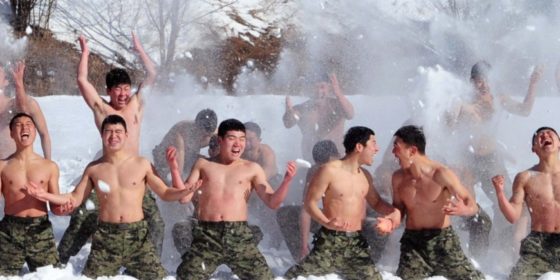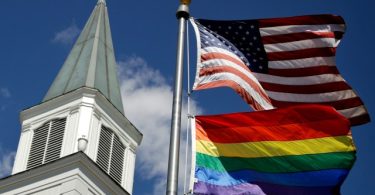
The South Korean government plans to review its ban on gay soldiers serving in the military.
In South Korea’s Military Criminal Act, a person convicted of sodomy or ‘other disgraceful conduct’ could face up to two years in prison. Military service is also compulsory for all South Korean men.
Earlier this year a soldier was sentenced to six months in prison for having consensual sex with another male soldier.
The Korea Times reports the government is working on a human rights report to submit to the United Nations at the end of the men. The government said it was reviewing the law so ‘the rules (are) clearer for gay soldiers’.
While it said not all gay soldiers would get into trouble there would be some rules around homosexuality.
‘In a given circumstance where only men stay together, the law is necessary to keep order. Punishment of gay soldiers also serves this purpose,’ it said.
‘Gay witchhunt’
The issue gained international attention in April when it was revealed a very senior military officer ordered a secret investigation to find out which soldiers were gay.
Homosexual activity constitutes ‘sexual harassment crime’ under the South Korea’s military criminal act.
‘We have secured evidence the army’s central investigators used a gay-specialized dating application to employ trap investigation techniques while violating the soldiers’ human rights,’ said Lim Tae-Hoon, head of the Military Human Rights Center for Korea (MHRCK) at the time.
East Asia Research Director at Amnesty International, Roseann Rife, called on the government to change the laws entirely.
‘President Moon Jae-in needs to send an unequivocal message that discrimination on the basis of sexual orientation or gender identity will not be tolerated, including in the military,’ she said in June.
‘It is long overdue for South Korea to repeal this archaic and discriminatory provision in the military criminal code, and get up-to-date when it comes to the rights of lesbian, gay, bisexual, transsexual and intersex people.’







